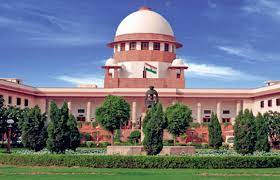
The Supreme Court in the case Mahdoom Bava v. Central Bureau of Investigation observed and has noted that some parts of the country, the trial court is to follow the practise of remanding the accused when they appear in response for summoning the order. The accused being a person apprehend arrest even in cases when the investigating agencies are not seeking their custody.
The bench comprising of Justice V Ramasubramanian and Justice Pankaj Mithal observed that the court is to follow the practice which is being followed by the courts for remanding the accused to custody, the moment the accused appear in response for summoning the order has to be tested in an appropriate case. Therefore, the said observations were made by the court while granting an anticipatory bail to the accused. Thus, the accused apprehended arrest at the behest of the trial court, although the CBI did not seek the custody.
The bench observed while granting the pre-arrest bail to the appellants that the arrest of the appellant, not at the behest of the CBI but at the behest of the Trial Court. This being the reason that some parts of the country, there seems to be a practice followed by Courts to remand the accused to custody and the moment they appear in response to the summoning order. The court is to test the correctness of such a practice in an appropriate case. The Supreme Court in the case Siddharth vs. State of Uttar Pradesh observed and has held that the practice of some Trial Courts of insisting on the arrest of an accused as a pre-requisite formality for taking the charge sheet on record which is to be misplaced and contrary to the very intent of Section 170 of the Criminal Procedure Code, 1873.
It has also been expressed by the Supreme Court the anguish that many trial courts were acting in violation of the judgment in the case Siddharth vs State of UP.
However, the Supreme Court also warned the Magistrates Who Do not Follow Judgments On Bail, The Court Stated That They Might Be Taken Off From Judicial Work And Will Sent For Training.